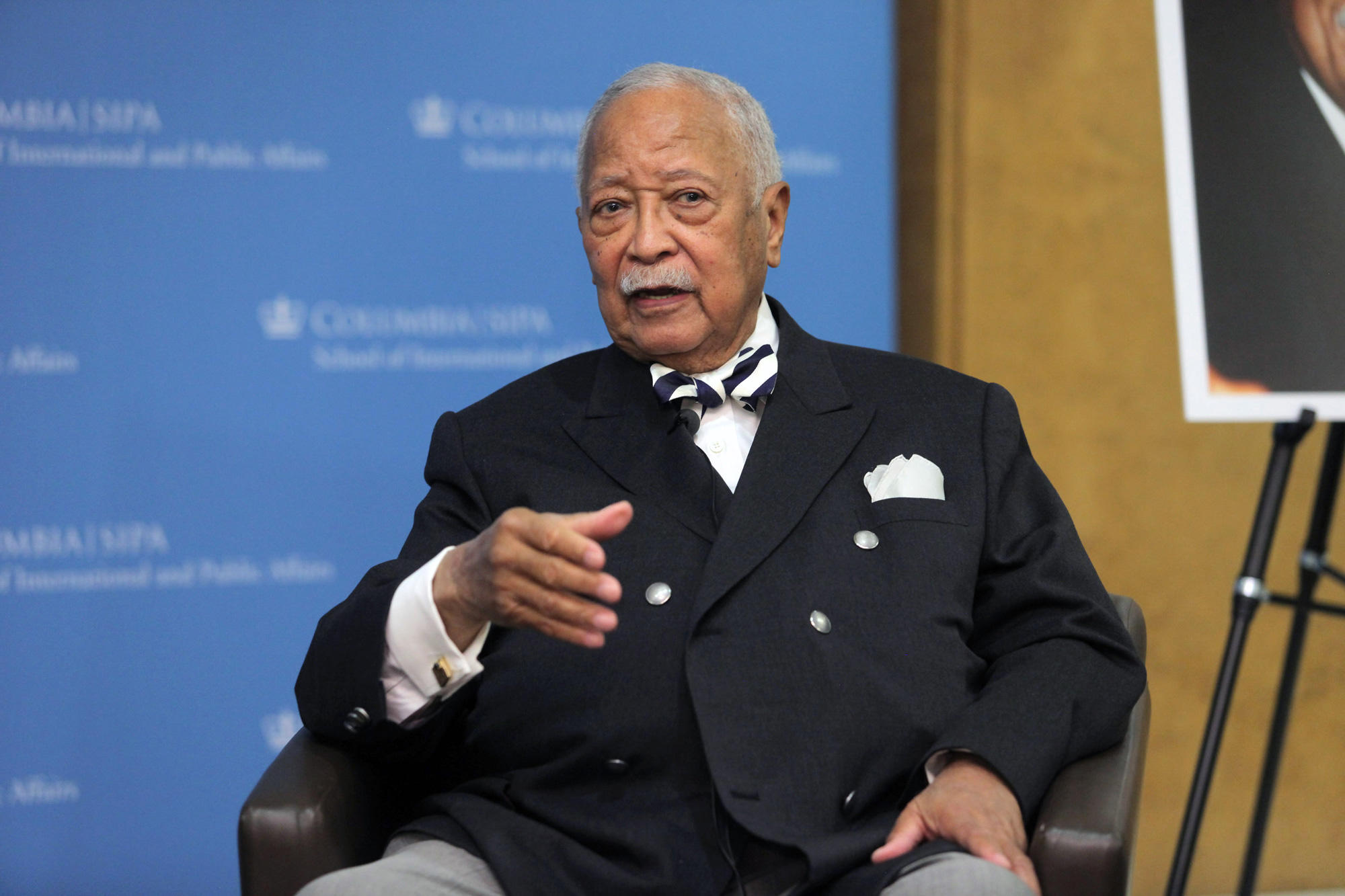The University recently announced the completion of its David N. Dinkins Papers and Oral History Project, which involved compiling the professional papers of New York City’s 106th mayor and conducting lengthy interviews with Dinkins about his life and career.
The archive, which is available to scholars at Columbia’s Rare Book and Manuscript Library, contains ninety-one linear feet of boxes filled with Dinkins’s speeches, campaign materials, endorsements, position papers, and other documents, as well as hours of recorded interviews.
Dinkins, who served as New York City’s mayor from 1990 to 1993 and is currently a professor at the School of International and Public Affairs, participated in a panel discussion at SIPA celebrating the archive. The panel, moderated by his former campaign aide and current SIPA faculty colleague Ester Fuchs, included Alondra Nelson, a Columbia sociologist and dean of social science who has written extensively about race and inequality, and Carl Weisbrod, a former member of the Dinkins administration who now chairs the New York City Planning Commission.
Nelson, when asked to discuss Dinkins’s place in history, said that his election as New York City’s first Black mayor opened up opportunities for Black politicians on a larger world stage and “prefigured and shaped what would become the Obama presidency.”
Dinkins noted that he had never considered running for mayor until Percy Sutton — the Manhattan borough president and the city’s highest-ranking Black politician at that time — suggested it. “No Black man runs for mayor in the city of New York. Who but Percy Sutton could have envisioned a Black man [even] owning a radio station?” he said, referring to the fact that Sutton had cofounded New York’s Inner City Broadcasting Corporation, which was one of the first major media corporations owned by African-Americans.
Dinkins, looking out over a sea of friends and former colleagues, then said: “What I hope people will understand and appreciate tonight ... is that nobody, but nobody, gets anywhere alone. Everybody stands on the shoulders of others.”



